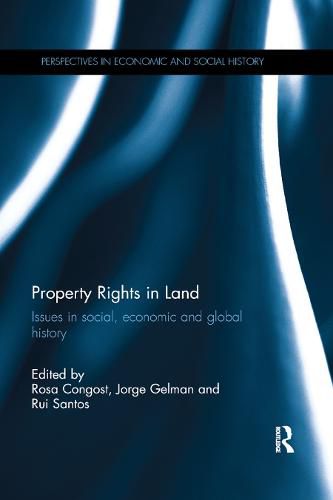Readings Newsletter
Become a Readings Member to make your shopping experience even easier.
Sign in or sign up for free!
You’re not far away from qualifying for FREE standard shipping within Australia
You’ve qualified for FREE standard shipping within Australia
The cart is loading…






Property Rights in Land widens our understanding of property rights by looking through the lenses of social history and sociology, discussing mainstream theory of new institutional economics and the derived grand narrative of economic development.
As neo-institutional development theory has become a narrative in global history and political economy, the problem of promoting global development has arisen from creating the conditions for ‘good’ institutions to take root in the global economy and in developing societies. Written by a collection of expert authors, the chapters delve into social processes through which property relations became institutionalized and were used in social action for the appropriation of resources and rent. This was in order to gain a better understanding of the social processes intervening between the institutionalized ‘rules of the game’ and their economic and social outcomes.
This collection of essays is of great interest to those who study economic history, historical sociology and economic sociology, as well as Agrarian and rural history.
$9.00 standard shipping within Australia
FREE standard shipping within Australia for orders over $100.00
Express & International shipping calculated at checkout
Property Rights in Land widens our understanding of property rights by looking through the lenses of social history and sociology, discussing mainstream theory of new institutional economics and the derived grand narrative of economic development.
As neo-institutional development theory has become a narrative in global history and political economy, the problem of promoting global development has arisen from creating the conditions for ‘good’ institutions to take root in the global economy and in developing societies. Written by a collection of expert authors, the chapters delve into social processes through which property relations became institutionalized and were used in social action for the appropriation of resources and rent. This was in order to gain a better understanding of the social processes intervening between the institutionalized ‘rules of the game’ and their economic and social outcomes.
This collection of essays is of great interest to those who study economic history, historical sociology and economic sociology, as well as Agrarian and rural history.